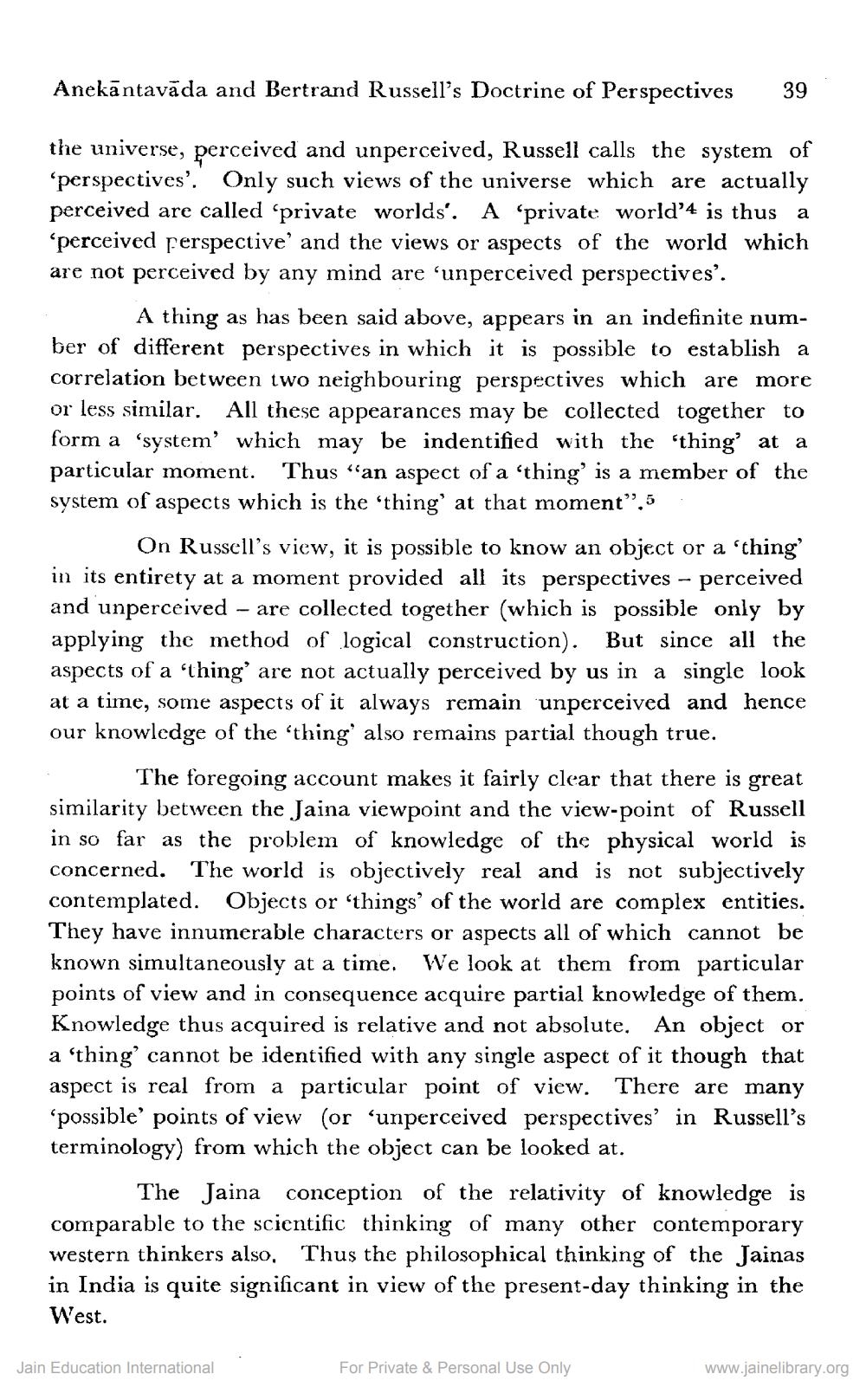________________
Anekāntavāda and Bertrand Russell's Doctrine of Perspectives
39
the universe, perceived and unperceived, Russell calls the system of 'perspectives'. Only such views of the universe which are actually perceived are called 'private worlds'. A 'private world'4 is thus a 'perceived perspective and the views or aspects of the world which are not perceived by any mind are 'unperceived perspectives'.
A thing as has been said above, appears in an indefinite number of different perspectives in which it is possible to establish a correlation between two neighbouring perspectives which are more or less similar. All these appearances may be collected together to form a 'system' which may be indentified with the thing at a particular moment. Thus sian aspect of a 'thing' is a member of the system of aspects which is the 'thing' at that moment”.5
On Russell's view, it is possible to know an object or a 'thing' in its entirety at a moment provided all its perspectives - perceived and unperceived – are collected together (which is possible only by applying the method of logical construction). But since all the aspects of a 'thing' are not actually perceived by us in a single look at a time, some aspects of it always remain unperceived and hence our knowledge of the 'thing' also remains partial though true.
The foregoing account makes it fairly clear that there is great similarity between the Jaina viewpoint and the view-point of Russell in so far as the problem of knowledge of the physical world is concerned. The world is objectively real and is not subjectively contemplated. Objects or "things of the world are complex entities. They have innumerable characters or aspects all of which cannot be known simultaneously at a time. We look at them from particular points of view and in consequence acquire partial knowledge of them. Knowledge thus acquired is relative and not absolute, An object or a 'thing' cannot be identified with any single aspect of it though that aspect is real from a particular point of view. There are 'possible' points of view (or “unperceived perspectives' in Russell's terminology) from which the object can be looked at.
The Jaina conception of the relativity of knowledge is comparable to the scientific thinking of many other contemporary western thinkers also. Thus the philosophical thinking of the Jainas in India is quite significant in view of the present-day thinking in the West.
Jain Education International
For Private & Personal Use Only
www.jainelibrary.org




